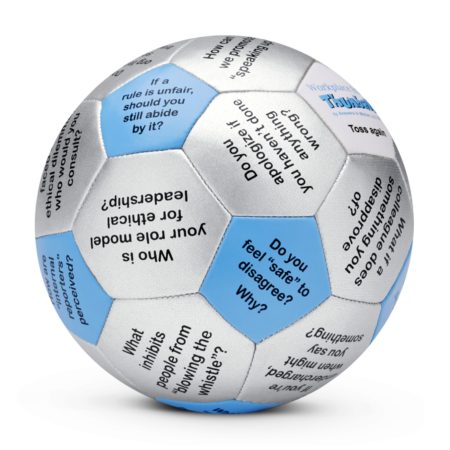Can you teach “Doing the Right Thing”?
Can ethics be taught? We know the question is at least 2500 years old, as the Greek philosopher Socrates is said to have debated the questions with fellow Athenians, and expressed the opinion that doing what is “right” can be taught. Why then, do only 46% of consumers in the United States trust that businesses will do what is right? (2011 Edelman Trust Barometer). Because too often, they don’t. Either good ethics haven’t been taught, or people are choosing to do otherwise.
When the Ethical Consumer surveyed their readers, asking for the names of the least ethical companies of the last 25 years, these familiar names topped the list: Nestlé, Monsanto, Amazon, Shell, Tesco, Barclays, Exxon, Wal Mart, Coca Cola, Primark. Which companies do we trust? According to the Forbes list of 124 Most Ethical Companies, these 13 have made the cut every single year: Aflac, Deere & Company, Ecolab, Fluor, GE, International Paper, Kao Corporation, Milliken and Company, PepsiCo, Starbucks, Texas Instruments, UPS and Xerox.
A model of teaching ethics: Forsyth’s Taxonomy
In 1980, Donelson Forsyth published an article in the Journal of Personality and Social Psychology, arguing that individual variations in approaches to moral judgment could be thought of in terms of two basic dimensions: relativism and idealism. Relativism suggests that ethical rules (i.e. “Thou shalt not lie”) may depend on circumstances rather than universal truths. Idealism considers whether moral codes should be absolute, or consider their potential for causing harm.
Based on these two dimensions, Forsyth created this four-quadrant classification for thinking about ethical decisions (See the Table):
Another model for teaching ethics: Conversation
As conceptually interesting as Forsyth’s model is, it still begs the question, how do we teach ethics and discuss moral dilemmas? Where do we find useful case studies and probing questions to stimulate meaningful conversation?
One great resource is the Daniels Fund website. Bill Daniels, a leader and pioneer in the cable industry, left more than $1 billion to the Daniels Fund, in an effort to expand business ethics education. The Website contains tons of cases, debate issues, podcasts, and teaching videos.
 Another playful resource is the Silver Series Workplace Ethics Thumball, developed by Office Oxygen. The ball contains 32 discussion prompts. Toss the ball and ask the recipient to respond to the prompt under their thumb. The Ethics Thumball raises appropriate workplace questions and fosters discussion about individual and organizational norms and ideals regarding making and breaking rules, fostering ethical leadership, whistle blowing, bending the truth, and more.
Another playful resource is the Silver Series Workplace Ethics Thumball, developed by Office Oxygen. The ball contains 32 discussion prompts. Toss the ball and ask the recipient to respond to the prompt under their thumb. The Ethics Thumball raises appropriate workplace questions and fosters discussion about individual and organizational norms and ideals regarding making and breaking rules, fostering ethical leadership, whistle blowing, bending the truth, and more.
With the tool, players can have rich conversations about the types of people you look to as a moral compass; how you’d handle different situations; what integrity, rules, ethics, and fairness mean to you; and how your organization or team handles ethical issues, and more. Prompts include:
- Who is your role model for ethical leadership?
- Who can you depend on to “tell it like it is”?
- If you faced an ethical dilemma, who would you consult?
- What do you believe compromises the ethical workplace?
- Can a behavior be “ethical” but also “unfair”?
- If a rule is unfair, should you still abide by it?
- How are “internal reporters” perceived?
- What if someone will get hurt if you do what’s right?
- When is it “not your place” to correct someone?
- Do you apologize if you haven’t done anything wrong?
So, can ethics be taught?
I’ll side with Socrates. I do think that despite the complexities of nuance and circumstance, people can be taught what’s “right.” The challenge facing organizations, and the people who work within them, isn’t about KNOWING what’s right, but CHOOSING TO DO what’s right–despite peer relationships, corporate expectations, cost, and repercussions. So, let’s start talking!
- +21
Comments


